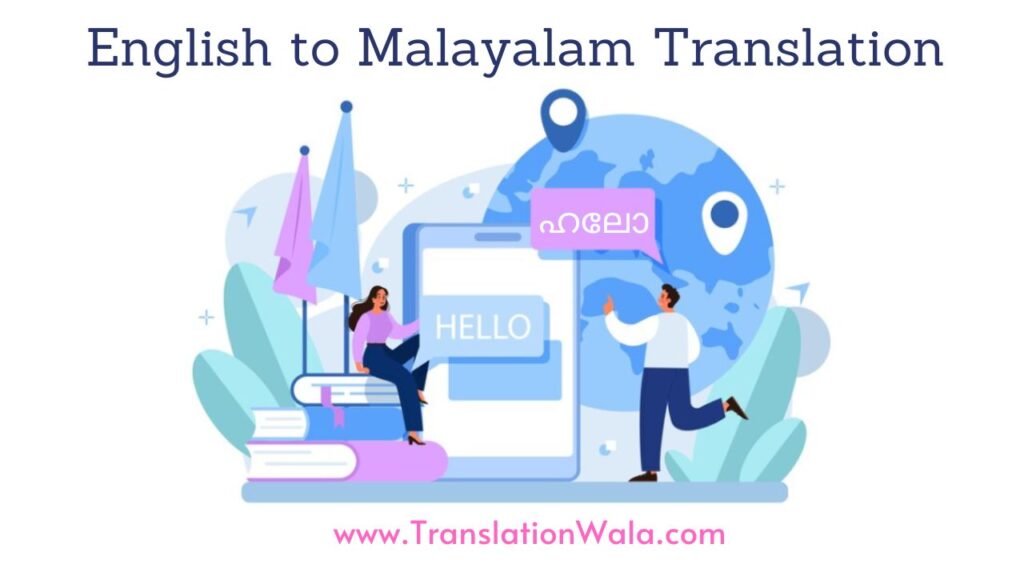India has a lot of different languages, which shows how culturally rich the country is. Over 45 million people speak Malayalam, mostly in Kerala. It is special because it has Dravidian roots and a long and complicated literature past. Still, the language barrier makes it hard for many people to enjoy the beauty of Malayalam writing and other tools for learning. This is where English to Malayalam translation comes in. It helps people from different countries learn from each other.
The Importance of English to Malayalam Translation
Today’s international world makes it possible for people to communicate effectively across countries. English to Malayalam translation is very important for:
- Preserving and disseminating Malayalam literature: Classical and modern Malayalam works can be read by more people, which helps people appreciate the language’s cultural history.
- Enhancing education and knowledge access: English-language teaching materials, study papers, and science breakthroughs can be turned into Malayalam, which helps students and scholars who understand Malayalam.
- Facilitating business and government communication: Correct translation makes it easy for people who speak Malayalam to talk to companies and government agencies that speak English.
- Promoting cultural exchange: Translated works make Malayalam culture, customs, and ideals available to people all over the world, which helps people understand each other better.
Challenges in Achieving Excellence
There’s no doubt that English to Malayalam translation is important, but getting great at it is hard for a number of reasons:
- Linguistic nuances: As a Dravidian language, Malayalam has different words and grammar patterns than English. To get the core and details of the source text, translators need to know a lot about both languages.
- Cultural context: Translating well is more than just changing words word-for-word. To make sure the translated text makes sense to the intended audience, translators need to be aware of cultural settings and local phrases.
- Technical terminology: To accurately translate academic terms used in science, health, and the law, you need to know a lot about the subject and have good language skills.
Also Read: Unlocking Global Communication: Document Translation Services Demystified

Strategies for Achieving English to Malayalam Translation Excellence
Even though there are problems, you can get great results with English to Malayalam translation by using a few of these methods:
- Skilled translators: It is very important to hire skilled translators who are fluent in both English and Malayalam. The best translators are native Malayalam speakers who are also very good at English language, vocabulary, and cultural details.
- Subject-matter expertise: For professional texts, it’s important to use translators who are both fluent in English and have experience in the subject. This makes sure that the translated text is clear and uses correct terminology.
- Technology-aided translation: Translation software and tools can help with the process by suggesting words and phrases and taking care of boring, repeated jobs automatically. However, human knowledge is still needed to check the quality of the translation and make sure it goes smoothly.
- Collaborative approach: When interpreters, writers, and subject-matter experts talk to each other and work together well, the quality of the end result is greatly improved.
The Future of English to Malayalam Translation
English to Malayalam Translation has a bright future ahead of it. Since the world is getting more and more linked, there will be a greater need for accurate translators.
- Machine translation advancements: Machine translation tools are always changing, which means that they will likely get better at translating languages like Malayalam. But human review and rewriting will still be necessary to make sure accuracy and natural language flow.
- Localization for the digital age: As online material and mobile apps become more popular, they need to be localized to reach Malayalam-speaking users. There will be a lot of work for translators who know how to localize websites and apps.
- Focus on cultural understanding: As the importance of cultural exchange grows, translators who can help people from English and Malayalam backgrounds understand each other better will be in higher demand.
Conclusion
Translating from English to Malayalam is an important part of building cultural links, sharing information, and knowing each other better. We can ensure success in this area by hiring skilled translators, making good use of technology, and working together. This will help more people around the world to enjoy the beauty and wealth of Malayalam.



